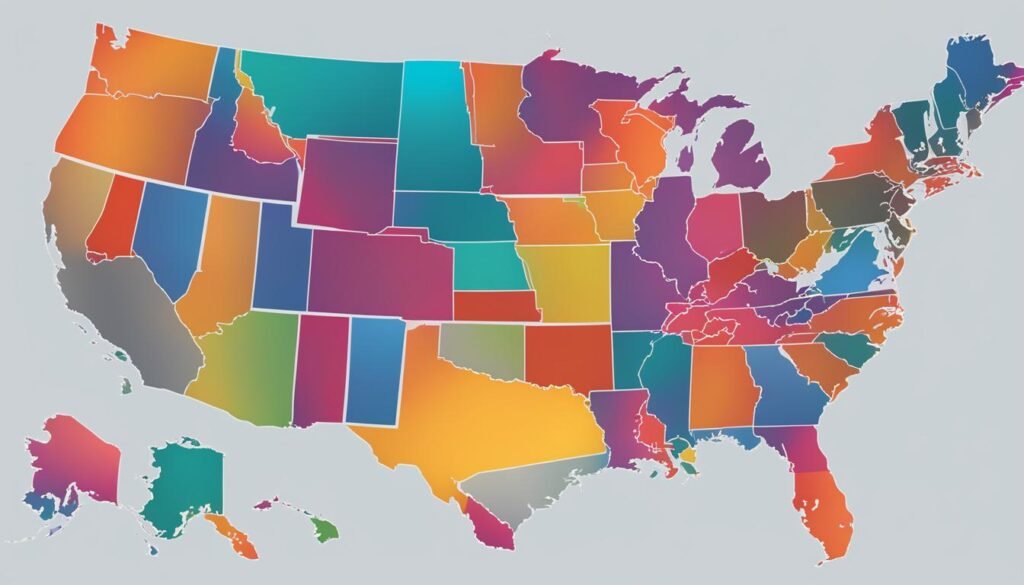Are you an aspiring entrepreneur looking to start your own small business? Securing funding can be a major challenge, but don’t worry – there are options available to help you turn your dreams into reality. Small business grants and loans are valuable resources that can provide the necessary capital to fund your startup.
Small-business grants, unlike loans, offer access to capital that doesn’t need to be repaid. Imagine receiving free money to launch or expand your business! These grants are especially beneficial for startups and existing businesses facing financial hardships, including those impacted by the recent coronavirus pandemic.
To get started on your journey to funding success, it’s important to explore a variety of sources. In this article, we will guide you through federal government grants, state and regional government grants, private company and nonprofit grants, as well as other alternative funding sources. With the right research and effort, you can find the financial support you need to bring your business idea to life.
Whether you’re in need of small business grants or loans, this comprehensive guide will help you navigate the world of funding options for your startup. Let’s dive in and explore the opportunities available to fund your small business!
Federal Government Grants for Small Businesses
Government agencies play a significant role in distributing business grants, providing support for various enterprises ranging from environmental conservation to child care services. While the application process may seem intimidating, federal business grants offer excellent opportunities for entrepreneurs looking to grow their businesses.
One notable federal government grant program is Grants.gov, a central hub that allows organizations to find and apply for over 1,000 federal grant programs. This platform streamlines the application process by consolidating grant opportunities from multiple federal agencies.
The Small Business Innovation Research (SBIR) and Small Business Technology Transfer (STTR) programs are also valuable resources for small businesses seeking federal funding. These programs focus on supporting innovative research and development projects with high commercialization potential.
The USDA Rural Business Development Grant specifically targets rural businesses and provides financial assistance for project planning, feasibility studies, and other development activities.
Another federal grant opportunity is the Program for Investors in Microentrepreneurs (PRIME). PRIME works to strengthen the capacity of microenterprise development organizations, which in turn support underserved entrepreneurs through training, technical assistance, and access to capital.

By exploring these federal government grants, small businesses can tap into valuable funding resources and accelerate their growth. It’s crucial to thoroughly research each opportunity and ensure that your business aligns with the specific requirements and objectives of the grant program.
State and Regional Government Grants for Small Businesses
While federal grants for small businesses are highly sought-after and competitive, it’s crucial to explore other funding options at the state and local levels. State government grants and regional government grants can provide valuable resources and support for small businesses. These grants focus on promoting economic development, encouraging entrepreneurship, and fostering innovation within local communities.
U.S. Economic Development Administration
The U.S. Economic Development Administration (EDA) is a key resource for businesses seeking state and regional government grants. The EDA offers various grant programs, resources, and technical assistance to stimulate economic growth and ensure sustainable development. By accessing EDA grants, small businesses can receive the necessary funding to pursue their growth plans and contribute to their local economies.
Through economic development initiatives, the EDA helps communities enhance their infrastructure, attract new businesses, and create jobs. These grants play a vital role in driving economic prosperity and improving the quality of life for residents across the country.
Small Business Development Centers (SBDC)
In addition to federal grants, small business owners should explore the services provided by local Small Business Development Centers (SBDCs). SBDCs are funded by state governments and offer a wide range of resources and assistance tailored specifically to small businesses.
These centers provide guidance on various aspects of business development, including access to state government grants. SBDC advisors can help entrepreneurs identify funding opportunities, navigate the application process, and develop a compelling grant proposal. Collaborating with an SBDC can significantly increase the chances of securing state government grants for small business growth.
Minority Business Development Agency (MBDA)
The Minority Business Development Agency (MBDA) is another avenue to explore when seeking state and regional government grants. The MBDA provides support to minority-owned businesses to foster their growth and success. Through its network of Business Centers and strategic partnerships, the MBDA offers resources, technical assistance, and access to grant programs specifically designed to support minority entrepreneurs.
By leveraging the resources and expertise of the MBDA, minority-owned small businesses can access state government grants that promote diversity, equity, and economic development in their communities.

By tapping into the opportunities provided by state and regional government grants, small businesses can secure the funding needed to thrive and drive economic growth at the local level. These grants empower entrepreneurs to innovate, expand their operations, and contribute to the development of their communities.
Private Company and Nonprofit Grants for Small Businesses
Aside from government grants, there are numerous opportunities for small businesses to secure funding and resources through private corporations and nonprofit organizations. These entities understand the value of supporting entrepreneurs and offer startup business grants or organize grant competitions.
If you’re a female entrepreneur, the IFundWomen Universal Grant Application Database provides access to a variety of grants specifically tailored to women-owned businesses. The grant offers invaluable financial support and resources to help your business thrive.
Another notable grant is the Amber Grant for Women. This grant specifically focuses on empowering women and provides funding to female entrepreneurs who demonstrate passion and dedication in pursuing their business ideas.
The National Association for the Self-Employed Growth Grant is an excellent option for self-employed individuals looking for financial assistance. This grant aims to stimulate economic growth and job creation by providing funding to small businesses across various industries.
For women entrepreneurs in San Francisco, there’s the San Francisco Women’s Entrepreneurship Fund. This grant program supports women-owned businesses in the city and offers financial aid, mentorship, and other valuable resources.
These private company and nonprofit grants provide the necessary funding and resources to help small-business owners start and expand their companies. By leveraging these opportunities, entrepreneurs can turn their visions into realities and achieve success in their respective industries.
Startup Business Grants from Other Sources
In addition to government and private grants, there are other alternative funding sources available for startup businesses. These options can provide the necessary financial support to get your venture off the ground. Consider the following alternatives:
- SBA microloans: The U.S. Small Business Administration (SBA) offers microloans to help small businesses obtain necessary capital. These loans are designed for startups and businesses with limited credit access, providing funding of up to $50,000.
- Small-business incubator programs: Joining a business incubator program can grant you access to a supportive network, mentorship, and potential funding opportunities. Incubators often provide shared office spaces, resources, and business development programs to help startups thrive.
- Funding from angel investors or venture capitalists: Angel investors and venture capitalists are individuals or firms that invest in promising businesses in exchange for equity. These investors typically provide larger sums of funding and often offer guidance and expertise to help grow your business.
Exploring these alternate funding options can give your startup the financial boost it needs to succeed. Remember to carefully evaluate each opportunity and consider how it aligns with your business goals and values.
Now, let’s delve into the conclusion of this guide and recap the key points discussed so far.
Conclusion
Securing funding for your small business can be a daunting task, but with the right research and effort, you can find small business grants and loans that can fund your startup. Whether you explore federal, state, or private grants or consider alternative funding sources, it’s important to carefully evaluate each opportunity and determine the best fit for your business’s needs.
Remember to thoroughly review grant requirements, eligibility criteria, and application deadlines before applying. This will help you maximize your chances of success and ensure that you are targeting the right grants for your business. Researching the various options available and understanding the specific requirements will enable you to craft a compelling grant application that stands out from the competition.
With persistence and determination, you can unlock the funding you need to start and grow your small business. Keep in mind that funding opportunities may change over time, and new grants may become available. Stay proactive and continue to explore new opportunities even if your initial applications are not successful. Consistency and adaptability are key when it comes to securing funding for your small business.
Source Links
- https://www.nerdwallet.com/article/small-business/small-business-grants
- https://www.nerdwallet.com/article/small-business/startup-business-grants
- https://www.shopify.com/blog/small-business-grants


